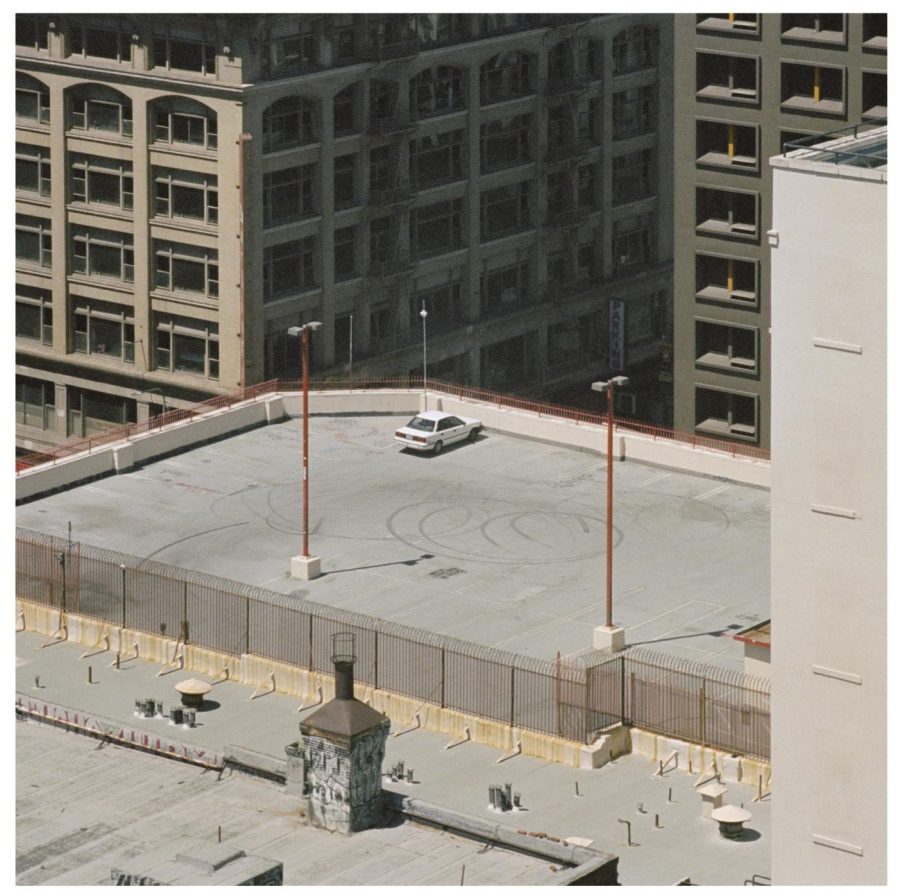It’s been four years since English rock band Arctic Monkeys released “Tranquility Base Hotel,” a visionary album that marked a hard left turn in the band’s discography. Polarizing and daring, the album was written entirely by lead singer Alex Turner, and quickly became my favorite release from the band. It seemed impossible to follow up such a tightly woven and conceptually sound project, and yet the band’s latest release, “The Car,” manages to live up to these steep expectations, furthering the Arctic Monkeys’ musical transformation.
On the surface “The Car” is a never-ending path, winding around lost trains of thought held together by Turner’s ever-present and powerful vocal lines. Sounds weave in and out throughout each song, with a storm of orchestral noise brewing behind every twist and turn. Yet the further you travel down this path, the clearer the album’s themes of love and longing become, and the sweeter the journey becomes.
Turner’s songwriting has always been fixated on ideas of love and doubt. Earlier projects such as “AM” or “Whatever People Say I Am, I’m Not” were expressive, and almost literal in the expression of these themes, while “Tranquility Base Hotel” concealed its themes beneath absurdist satire and metaphoric narrative. “The Car” sits somewhere in the middle, obscuring its base themes through meandering roads of thought that often end in mist, forcing the listener to dive deeper to uncover the simple truths within.
Furthermore, while “Tranquility Base Hotel” found Turner at his most personal, “The Car” avoids extensive personal revelation, pivoting from topic to topic before you even have time to register. Nothing is concrete, except perhaps the road you travel as you listen, a road that is paved in fear and paranoia.
“Sculptures of Anything Goes” is perhaps the best representation of the journey the album takes you on, both in its songwriting and instrumentation. The paranoia is evident, with Turner singing about stark galleries and villages filled with spies. The song is intentionally enigmatic, and finds Turner contemplating on the band’s self consciousness and evolving style. He expresses the need to be “untied from the chandelier,” set free from his audience’s expectations and criticisms.
“Sculptures of Anything Goes” is also one of the more stripped back cuts on the album, with few sounds accompanying the slow and pounding drums. The song opens with powerful walls of reverberated bass, which surround and isolate Turner’s voice, creating a distinct feeling of being trapped. Orchestral instrumentation builds, but the walls of bass remain as the dominant sound in the mix, suffocating and crushing all other sounds. Musically it’s incredibly effective and highlights the tight relationship and understanding between songwriting and composition that Turner and the rest of the band clearly have.
As the album switches from topic to topic, it pivots to different sounds, some familiar, some foreign to longtime listeners. “There’d Better Be Mirrorball” feels straight out of a Piero Piccioni soundtrack, steered along by a light and beautiful flute and piano notes. “Hello You” evokes the jazz funk sounds of the 60’s and 70’s, while “Mr. Schwartz” feels right at home with other contemporary folk tracks of the early 2000’s.
The centerpiece of the album, “Body Paint,” feels the most familiar out of all the tracks. Sonically it’s a fusion of the band’s style, mixing the scrappy classic sound most associated with its early works with more contemporary instrumental experimentation. The song slowly builds, guided along by swift strings and the soft falsetto Turner puts on for the majority of this album. While the song begins with orchestral string notes, it builds layer by layer, culminating in a familiar, albeit experimental, statement of classic rock sound.
The sense of familiarity doesn’t end with Body Paint’s carefully crafted auditory landscape. Turner sings on familiar topics to fans of his previous work, crooning about lost love and regret. Turner continues to dance around ideas, and “Body Paint” best shows Turner’s usage of specific lines as dramatic musical punctuation. Turner works up the courage to a single statement. “If you’re thinking of me, I’m probably thinking of you,” a line that’s been built throughout the course of the song. It’s not the end of the track though, merely halting the song for a moment, signaling the dramatic instrumental transformation that’s about to begin. Out of all the moments on the album, it’s the one that feels the most important and the hardest to say. Turner has built up an entire song to support one statement, and it stands out as one of the more coherent ideas the album presents.
Above all, “The Car” is adventurous. Listening to this album you get the chance to step into the passenger seat, letting Turner drive you down winding paths of varying instrumentation, dead ends of thought and thematic detours of varying depth. It’s hard to find a final destination at the end of this album, which in some ways makes it make that much more sense. The journey is what is worth remembering in the end, and “The Car” presents an emotional and musical journey that I for one will be traveling for years to come.
Overall I would rate this album 8.5 out of 10 stars.
This story was written by Sam Baughn. He can be reached at sam.baughn@marquette.edu.







